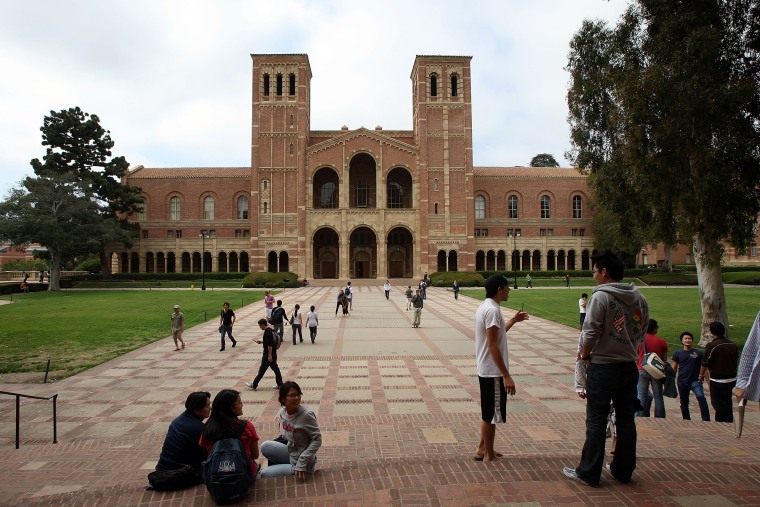Less than a third of California's Latino high school graduates pass courses required to enter a four- year state university, jeopardizing the state's future workforce and economy, a report released Wednesday said.
The report by the Campaign for College Opportunity examines how the 15 million Latinos living in California are faring in the state’s college and university systems. The campaign is a coalition of social justice, business and higher education groups and foundations whose mission is to preserve access to college education in the state.
Only 29 percent of California's Latino students who graduate from high school pass the courses, known as A-G, required for a four-year public university in California, the report finds. The same goes for black students. Meanwhile 65 percent of Asians, 47 percent of whites and 35 percent of Pacific Islanders pass the courses.
This is true even though more California Latinos than ever are earning high school diplomas and graduating from college.
“When one in two children under the age of 18 in California is Latino, one conclusion is clear: the future of our economy and the state will rise or fall on the educational success of Latinos,” the report said. “To secure the economic future of California we need to significantly increase the number of Latino students who are prepared for, enroll in and graduate from college.”
California will need up to 2.3 million additional college-educated workers by the year 2025, but meeting those workforce needs will be impossible without an increase in Latino college graduates, the report said.
The report offers a list of recommendation such as have state’s colleges move students through pre-college level courses more quickly and improve financial support for low- to moderate-income college students.
In addition, the report recommends allowing California’s public universities to use race or ethnicity as one of the many factors to determine a student’s qualifications for admission.
